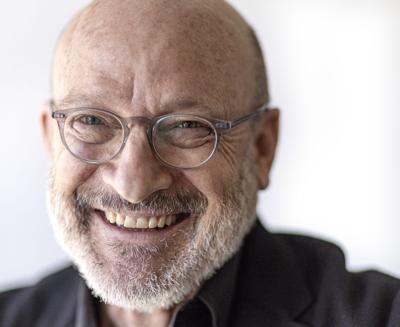Summer is the season of celebrating freedom: Pride Month, Juneteenth, Independence Day, Women's Equality Day.
This year, our festivities cannot help but be tinged with anxiety.
Just two years ago, the Supreme Court overturned Roe v. Wade, setting women's rights back a half-century. That same summer, the court ruled in favor of religious beliefs over LGBTQ+ rights, permitting some businesses to deny services to gay clients in the name of free speech.
And even as some states have expanded voting rights, many others have recently passed legislation to restrict them. This November, voters in 27 states will face restrictions they’ve never experienced before in a modern presidential election.
What does this have to do with your money?
We go to the ballot box to vote for our elected officials. But don’t forget that as an investor, you can also make sure your money has a voice.
How?
Today’s corporations have accumulated an unprecedented amount of power in private hands. They set trends and steer politics. Their decisions touch every aspect of our lives.
Publicly traded companies must hold annual shareholder meetings at which board members are elected and company policies debated.
As shareholders, we can raise concerns like equal pay for women, protection of LGBTQ+ employees, provision of reproductive health services and racial hiring bias. When these issues are brought to the ballot in the form of shareholder proposals, every shareholder gets to vote. Corporations are not exactly democracies — proposals are nonbinding and the weight of your vote is determined by the size of your share — but the outcome of shareholder proposals can have a big influence on company policies and disclosures.
If you own individual stocks, you can go to asyousow.org for a list of upcoming shareholder meetings, proposals and guidelines for voting your stock.
Or you can invest in a sustainable mutual fund.
Sustainable mutual funds and ETFs invest based on environmental, social and governance (ESG) considerations. They typically avoid controversial weapons, tobacco and other products that hurt people. They shun major polluters and companies that exploit labor.
A subset of sustainable funds also practice "active ownership," using shareholder advocacy to push corporations to behave responsibly.
These active owners collaborate with other institutions to build shareholder coalitions. As large investors, they have the leverage to engage behind the scenes with management. If a company is unresponsive, then the funds can back shareholder resolutions that publicly air these issues and demand change. They can also vote out board members.
In the last several years, shareholders have won majority votes on proposals including getting Johnson & Johnson to conduct a civil rights audit on the social and racial impact of its business practices, asking McDonald's to report on racial and gender pay gaps and to create a plan to reduce disparities, pushing Meta (Facebook) to report on how it screens for misinformation that targets marginalized communities, pressuring Starbucks to report on workers’ rights including freedom of association and collective bargaining, and Home Depot to report on its efforts to fight discrimination based on race, sexual orientation and gender identity.
A lot of progress has also been made getting companies to disclose their hiring practices. In 2024, 95% of the largest 100 corporations in the U.S. had released or committed to releasing their Equal Employment Opportunity reports, compared to only 20% just four years earlier.
You may be surprised to know that active ownership can enhance a company's performance as well as advancing social justice. Diversity and an emphasis on sustainability have been proven to improve corporate profitability and reduce business risk.
It’s easy to learn your fund's ownership practices: They can usually be found on its website. Data providers like Morningstar (morningstar.com) also offer proxy voting analysis at no cost.
So if life, liberty and the pursuit of happiness for all Americans concern you, consider voting your proxies or investing in a sustainable mutual fund. By doing so, you join a coalition of like-minded investors with strength in numbers to create positive change.
This material is intended for educational purposes only. You should always consult a financial, tax or legal professional familiar with your unique circumstances before making any financial decisions. Nothing in this material constitutes a solicitation for the sale or purchase of any securities.









